November 2020: Olive Tree

Volume V/Issue 8/November 2020


From The Editorial Desk
When It Doesn't Make Sense
“...we are perplexed, but not in despair.” II Corinthians 4:8
Saint Paul was in perplexity but not in despair. He was not whistling his way through the graveyard, however; nor was her merely “smiling through” or looking for something to turn up.
His way out was not by painting the clouds with sunshine, wearing rose-colored glasses quoting lovely poems about “God's in His heaven, all's right with the world!”
I am constantly situations that don't make sense. Wives who have lost a husband in an accident while on their honeymoon, parents loosing their child to a murdering pedophile, Or even when elections do not go the way you think they should go! When things like this happen there looms again the perplexity of those things we cannot understand. Thing that do not fit into any of our patterns.
Of course men have wrestled with such puzzles from the beginning. It was Job's perplexity Habbakkuk contended with it and gave us his blessed “although” and “yet”.
“ALTHOUGH the fig tree shall not blossom: neither shall there be spring in the vines. The labour of the olive tree shall fail: and the fields shall yield no food: the flock shall be cut off from the fold, and there shall be no herd in the stalls. YET I will rejoice in the Lord: and I will joy in God my Salvation” (Habakkuk 3:17-18)
Micah surveyed a dismal day when godly men had perished from the earth, while the wicked prospered.
He got through to God and a man had better do that or he will go crazy. John the Baptist sat in prison and doubtless pondered why Jesus could work all His miracles but leave His forerunner in jail.
Some things are given us to know (Matthew 13:11), but somethings are not for us to know (Acts 1:7). Unfortunately, we fail to learn much we could know by trying to find out what we cannot know.
The little boy who couldn't understand why God put so many vitamins in spinach instead of ice-cream was learning early that things just don't work out as we would do them if we were in charge of the universe.
Some things just don't make sense, but we may be perplexed yet not in despair. The way out is not by explanation for some of these riddles, but it does supply revelation.
To begin with, when things do not make sense to us, it does not mean that they don't make sense at all.
Furthermore, when some things do not make sense to us now, it does not mean that they never will make sense.
But a still deeper consideration remains. There is a higher viewpoint from which things which don't make sense to our ordinary reasoning can make sense to our spiritual understanding even now.
The highest lesson God want to teach us is to trust Him regardless. If everything made sense to our own understanding, we would not need faith. If everything worked out in storybook style, we would become complacent and spoiled.
God wants to bring us to a higher plane where He Himself is our portion and reward, where we can say “Now You alone I seek; give me what is best for me!”

Surround Yourself With Saints

November begins with All Saints Day. Recently We read: "You are the average of the five people you spend time with." This same advertisement soon says: "The people you surround yourself with are the biggest influence on your behaviour, attitudes and results." Then they offer a service to bring you the thinking of five rich people you can read to help you become rich. Our goal is far loftier, sainthood.
First let us ask ourselves, who are we surrounding ourselves with? Who are we allowing to influence our behavior, attitudes and results? Do we need to make any changes. And since we can consider not only those we have regular contact in person, but also those we allow into our lives by other means, reading, telephone, television, our friends on Facebook, we need to look over them as well.
We need to surround ourselves with saints, beginning with our daily reading. After Sacred Scripture the writings of the saints come next. They have completed the journey to heaven. We need to be working to join them. They are pointing out the way to heaven they were traveling.
We need to start out own spiritual reading program and spend a notable amount of time in this program. Saint Alphonsus tells us to hear all of the sermons in your power, but we don't need just any sermons. We need sermons that will lead us to heaven. Many of the sermons given today have no real substance. They may tickle the ears, but they do not get to the heart.
When Saint Alphonsus was a Bishop, how many in his flock could read? If he wrote today, he would advise us all to spend quality time in spiritual reading. Actually here is his advice: "Read some spiritual book for half an hour, or at least a quarter; and it will be best to make use of the lives of the Saints. … Endeavor to hear all the sermons in your power." And Saint John Eudes says: "Therefore, one thing I recommend to you with singular insistence is that you never let a day go by without reading some spiritual book for half an hour." Today would they advise us to spend more time in spiritual reading and prayer? Actually a book written about a century ago advises that we spend ten percent of our time in spiritual pursuits, which includes spiritual reading and meditation. Ten percent of our time is two hours and twenty-four minutes a day.
Saint Bernard says: "Seek in spiritual reading, and you shall find in meditation." The purpose of spiritual reading is to give us something good to consider in our hearts. Saint Teresa of Avila says: "He that neglects mental prayer has no need of being taken to hell by demons: he will cast himself into it." In a short period we have heard some very good advice from several saints.
Saint John Eudes wrote a book, The Life and Kingdom of Jesus in Christian Souls. This book is excellent for us, who want to become saints. Saint Alphonsus has written many books. One is Charity: A Commentary on I Corinthians 13. It is also good to simply read Scripture itself, such as I Corinthians 13. Let us take this to heart. Does this Scripture describe me?
We need to compile a library of good solid spiritual books written by the Saints. How much money do we spend on luxuries? Worldly pleasures are fleeting here this minute and gone in a few. Also they cannot continue satisfying. A bowl of ice cream is good, but the second is not as good and if you kept eating ice cream you would eventually push it away as disgusting or worse. Spiritual goods, however are lasting and will carry forward into eternity. True we cannot always be reading, but spiritual reading plants seeds in our minds and heart, which we hope will take root and give us something to consider in our heart. A spiritual library is the best investment you can make.
When reading, let us remember that it is not quantity, but quality we are seeking. One sentence can give us something to consider and take to heart for days. "Whatsoever shall befall the just man, it shall not make him sad: but the wicked shall be filled with mischief." (Proverbs 12:21) If I am sad, then I cannot be just, because if I were just no matter what happens I would not be saddened. Instead I would say with Job: "the Lord gave, and the Lord hath taken away..." (Job 1:21) Whatever befalls us comes from the Lord. In two part sentences we have much to consider and take to heart. The beauty is that Scripture has much to tell us and the Saints bring these things together and tie Scripture with Scripture with an explanation to help us consider these things.
Also, we should mark important point and make notes in the back or front of our books of what strikes us, so we can return later. It is an adventure to pick up a book we have read decades ago and look at the notes. Guaranteed something new will strike us, if we reread parts of the book. Also something we have read many times may unfold a new thought, such as: "For a just man shall fall seven times and shall rise again: but the wicked shall fall down into evil." (Proverbs 24:16) Notice the word 'fall'. This hit this author recently. First of all, this verse is applied to venial sin, that totally avoiding venial sin is impossible. However, falling implies accidental sin, not deliberate sin. One can stub one's toe and say darn... However, to eat too much is a deliberate sin of gluttony, which can be avoided. This is not 'falling' into sin, but seeking it out.
A good practice in addition to daily meditation, prayer and spiritual reading is what is called meditative reading where we take a good spiritual book and slowly consider it, taking good points to heart to consider throughout the rest of the day.

Purity of Thought

St. Paul to the Philippians said," Finally, my brothers, your thoughts should be wholly directed to all that is true, all that deserves respect, all that is honest, pure, admirable, decent, virtuous or worthy of praise." (Phil.4:8).
Our mind is locus and focus of everything under the sun. Just like television, it has variety of channels. There's comedy channel, there's romance channel, action movie channel, drama channel and what have you. But the remote control is with us. we select what is our favorite channel. We can select what we want to play in our mind. In Philippians 4:8, St. Paul was encouraging the Christians of his time to choose what is positive in as much as what we contemplate becomes a reality. If we contemplate evil, we will produce evil just as if we contemplate good, we shall produce good works.
Our mind is like a fertile ground, if we sow apple seed, we harvest an Apple, if we sow banana roots, we harvest bananas. We cannot produce bananas from an apple seed and vice versa. Likewise, we cannot have good works from evil thoughts. Should we want to produce good works, we must have good thoughts.
Thus, St. Paul's letter is an invitation for us to purify our thoughts. We need to constantly meditate on the word of God. We need to constantly immerse our selves with the scriptures. Most of the time our mind is tempted to entertain fear, doubts as well as disappointing thoughts, why not replace it with a consideration to faith? Fear paralyses, faith keeps us going. Scripture verses can help us replace fear with faith. Instead of entertaining thoughts like, "this is not going to work" why not think, "I can do all things through Christ who strengthens me". Instead of thinking, "the boss at that company is rude", why not think," I am a highly favored person".
Watching TV and videos which are violent can produce a violent child. I remember when I was in primary school, I used to go home with black eye because of fight with classmate. We certainly become what we watch. Hence, to produce saints in our time means marinade our selves with holy scripture and spiritual readings. Scripture produces saints and spiritual readings produces people of faith.
St. Augustine was converted to faith when he heard, "tolle lege, tolle lege" (which means, "take and read, take and read"). There's a possibility that we are converted, when we read good books.
Most of our problems, according to psychology, are mind problems. It follows, problems are solved when we purify our thoughts, when we choose faith instead of fear. Thus our Lord said, "the kingdom of God is at hand, repent and believe in the gospel" (Mark 1:15). To repent means to change our mind. Metanoia in Greek.

Seeing Clearly

In the language of optometry, 2020 means perfect vision; 2020 means you are capable of seeing big letters and smaller ones as well even from a far distance.
Currently we are experiencing a Pandemic this 2020, we see it's disadvantages and advantages; it's curse and blessings; we see closing doors and doors opening.
Seeing them together from the distance, we can still see that there's a balance in the world. Two opposing polarities are not that really bad, rather blessings are being born out of it. In opposition there's a promotion. The contradiction of the cross bears a new life.
This is wisdom. Google defines wisdom as body of principles that develops within a specific period. Wisdom is seeing clearly what is important and not important; judging what is number one and what's number two so on and so forth. Wisdom sees what should be prioritize and relative.
As we move forward to the closing of 2020 in two more months, we realized that what is important is our transformation from compulsive state to a more conscious state; from non sensitivity to sensitivity to the world around us so that we can be a man of God by becoming a man for others after the example of our Lord Jesus Christ, our King.

The Funny Pharmacy
A joyful mind maketh age flourishing: a sorrowful spirit drieth up the bones. - Proverbs 17:22
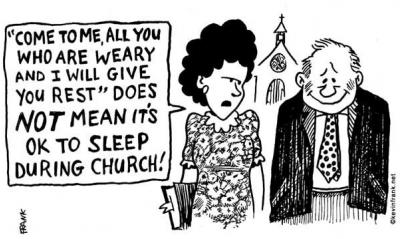
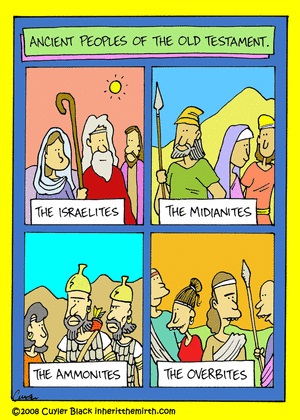



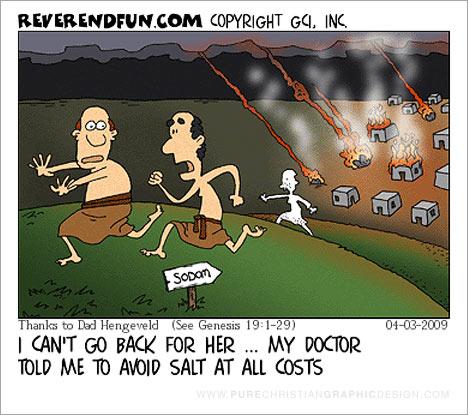

Frequently Asked Questions

Is The Bible Inerrant?
The Catholic Church teaches that Sacred Scripture is truly the Word of God. Through the Bible, God gradually reveals Himself, communicates His plan of salvation, and calls us to a relationship with Him.
The Church has always taught that we can approach the Scriptures with a rock-solid confidence because they are inspired by God Himself and therefore contain no error. This inerrancy is a great gift because it gives the Bible a credibility on which we can base our lives. God inspired the Scriptures in order to give us a fully trustworthy source about what we are to believe and how we are to act. When read within the Church’s living Tradition and magisterial teaching, the Bible is a sure guide for our lives.
The basis for the Church’s teaching on biblical inerrancy is inspiration. Here we must remember that the Bible is different from any other book. It is unique because it has a unique author: God Himself. As Saint Paul says:
“All scripture is inspired by God and profitable for teaching, for reproof, for correction, and for training in righteousness, that the man of God may be complete, equipped for every good work (2 Timothy 3:16-17).
Divine inspiration literally means “God-breathed.” This is why the Church teaches that the Scriptures have God as their author. God worked through human writers who consigned to writing whatever he wanted written, and no more. So while the human writers made full use of their own powers and abilities, they were at the same time inspired by the Holy Spirit so that the words of Scripture are written exactly the way God Himself intended. Indeed, the Scriptures contain the very words of God expressed in the words of men.
Since the words of Scripture are inspired by God Himself, the Church has always taught that every part of the Bible is without error. Otherwise “error” in the Bible would have to be attributed to God, who is supreme Truth and who can neither deceive nor be deceived.
Since, therefore, all that the inspired authors, or sacred writers, affirm should be regarded as affirmed by the Holy Spirit, we must acknowledge that the books of Scripture firmly, faithfully and without error, teach that truth which God, for the sake of our salvation, wished to see confided to the sacred Scriptures.
The Church teaches that the Bible is inerrant in all that the sacred writers intended to affirm. The Church makes the important distinction between the literal sense of Scripture and a literalistic interpretation. The literal sense is “that which has been expressed directly by the inspired authors.” To arrive at the literal sense, one must interpret the text according to the literary conventions of the time and consider the author’s intention, literary genre, and historical context.
For example, when Christ warns that it is better for you to cut your hand off if it causes you to sin (Mark 9:43), He is using a literary metaphor. However, a literalistic reading would take this teaching of Christ at face value and wrongly encourage cutting off portions of the body that cause one to sin! Similarly, when Psalm 73:20 speaks of God awakening, this is not meant to teach that Yahweh actually sleeps at night and gets up in the morning, but rather this figurative language describes how God, after remaining seemingly unresponsive to a situation, begins to take action like a man awaking from sleep.
For answers to more frequently asked questions, click here: https://www.vaticaninexile.com/frequently_asked_questions.php
The Pope Speaks: November 2020
I Am Not Proud to be a Catholic

Saint Alphonsus says: "The Lord does indeed regard the prayers of His servants, but only of His servants who are humble." Almost two decades ago a friend wrote a letter in which he said that we cannot have an ounce of pride in our selves and he was right. Proverbs (16:18) tells us: "Pride goeth before destruction: and the spirit is lifted up before a fall." The road to hell is paved with pride, where as the road of humility is the road to heaven.
To be proud of something is to be pleased with something we believe we have created. However, if we look closely at many of the things we take pride in, we will find that we did not create them, God did. For instance having a high IQ is not our own creation, but a gift from God, therefore we should not take pride in it. In fact, we should remember the Scripture: "And unto whomsoever much is given, of him much shall be required: and to whom they have committed much, of him they will demand the more." (Luke 12:48) And God brought us into His Church to serve Him and our neighbor. The only thing we create is our own sin and sin is certainly not something to be proud of. In fact pride itself is a sin.
We need to purify our thinking and our speech and not take pride in anything. Rather let us thank God for these great gifts and then use them as He wishes us to use them.
Let us return to Saint Alphonsus: "He hath had regard to the prayer of the humble." [Ps. 101: 18] Others He does not regard, but rejects them: "God resisteth the proud, and giveth grace to the humble." [James 4: 6] He does not hear the prayers of the proud who trust in their own strength; but for that reason leaves them to their own feebleness; and in this state deprived of God's aid, they must certainly perish. David had to bewail this case: "Before I was humbled I offended." [Ps. 118: 67] I sinned because I was not humble."
Saint Alphonsus is telling us that God does not hear the proud, but only the humble. Let us remember that pride drives out humility and destroys our soul. We need to begin a study of humility so that we can acquire this great grace.
Jesus says: "Take up my yoke upon you, and learn of me, because I am meek, and humble of heart: and you shall find rest to your souls." (Matthew 11:29) This is why we should spend time in the Gospels so we can see how Jesus teaches us by deed and word. "Greater love than this no man hath, that a man lay down his life for his friends." (John 15:13) Jesus laid down His life for us who by sin are His enemies, not His friends. We should be prepared to lay down our life by living it in the spirit of martyrdom for Him.
The holy Cure of Ars, Saint John Vianney tells us: "pride produces every sin." When we say we are proud of something, we do not necessarily mean the sin of pride, but this is what has happened to us. The world is implanting false thinking into us by redefining words. We must walk away from this and remove these new definitions from our mind and not fall into the Operation of Error. (II Thessalonians 2:10) In things such as pride, we must stay with the Biblical meaning or we will not truly understand Sacred Scripture. "Pride goeth before destruction: and the spirit is lifted up before a fall." (Proverbs 16:18) Certainly we do not want this form of pride. We need to express ourselves in a different way. Should the great grace of salvation given to us through the Catholic Church humble us rather than exalt us. God has chosen me to be a Catholic. If this thought is not humbling, then we need to go to God and admit: "I am pride."
We have begun a project, which We call purity of thought. In this We are considering such as we are considering here, but this is the tip of the ice berg. The Operation of Error has been implanted in the world for decades, if not longer.
In order to purify our thinking, Saint Alphonsus says: "And above all, it is necessary to impress deeply on the mind certain fundamental spiritual maxims, such as: “God alone deserves to be loved. Sin is the only evil which we ought to hate. Whatever God wills is good. All worldly goods shall have an end. The most insignificant action, performed for God’s sake, is more profitable than the conversion of the whole world, effected from any other motive than the love of God. It is necessary to do what at the hour of death we would wish to have done. We ought to live on this earth as if there were nothing in existence but God and ourselves.” He whose mind is continually filled with holy maxims suffers little molestation from earthly objects, and is always strong enough to resist his corrupt inclinations. The Saints kept their souls always occupied with the truths of eternity, and thus in the time of temptation, were almost insensible to the goods or the evils of this life."
Saint John Vianney also tells us: "Yes, dear brethren, the Evil Spirit is not afraid of our piety if we do not put humility as its foundation. The devil knows well that he can destroy that piety if he wants to." So let us put all thought of pride out of our minds. Let us not be proud of anything.
I am not proud to be a Catholic.


Saint Mark the Ascetic
On The Spiritual Law

41. When you have done something good, remember the words 'without Me you can do nothing’ (John 15:5).
42. Afflictions bring blessing to man; self-esteem and sensual pleasure, evil.
43. He who suffers injustice escapes sin, finding help in proportion to his affliction.
44. The greater a man's faith that Christ will reward him, the greater his readiness to endure every injustice.
45. By praying for those who wrong us we overthrow the devil; opposing them we are wounded by him.
46. Better a human than a demonic sin. Through performing the Lord's will we overcome both.
47. Every blessing comes from the Lord providentially. But this fact escapes the notice of the ungrateful and the idle.
48. Every vice leads in the end to forbidden pleasure; and every virtue to spiritual blessing. Each arouses what is akin to it.
49. Censure from men afflicts the heart; but if patiently accepted it generates purity.
50. Ignorance makes us reject what is beneficial; and when it becomes brazen it strengthens the hold of evil.
Saints from East and West

November 11 - Saint Bartholomew of Grottaferrata.
Saint Nilus, the founder of the Greek abbey of Grottaferrata in the Tuscan plain, died in the year 1004, and was succeeded as abbot in quick succession by Paul, Cyril, and Bartholomew. They were all personal disciples of Nilus, the last named being venerated as the lesser founder of the monastery; for Saint Nilus and his first two successors were able only to clear the land and begin building, while Saint Bartholomew carried the work to its conclusion and firmly established his monks, who had been driven from southern Italy and Sicily by Saracen invasions. He made his monastery a centre for learned studies and the copying of manuscripts, himself being skilled in the art of calligraphy, and he composed a number of liturgical hymns.
A canon in the liturgical office of Saint Bartholomew contains these words: "When, O father, thou didst see the Roman Pontiff rejected, thou didst persuade him by wise words to give up his throne and to end his days in the happy life of a monk." This refers to the Grottaferrata tradition - perhaps a true one - concerning the last years of Pope Benedict IX, whose grandfather, Count Gregory of Tusculum, had given the land on which the abbey is built. When Benedict, after a stormy and scandalous reign of twelve years, having first resigned the papacy for a money payment and then tried to regain it, was finally driven from Rome in 1048, he came to Grottaferrata in a state of remorse. Abbot Bartholomew was quite definite as to what was Benedict's duty: by his disorders he had made himself unfit to be a priest, much less a pope; he must definitely resign all claim to that dignity and fulfil the rest of his life in penance (he was still only about thirty-six years old). The influence of the abbot gradually changed Benedict's remorse into true penitence; he remained at Grottaferrata as a simple monk and died there.
This account of the saint's part in the career of Benedict IX is first found in the Life of Saint Bartholomew, perhaps written by his third successor, Abbot Luke I, and is supported by monuments at the abbey; but it appears that in 1055, the year of his death, Benedict vas still calling himself pope. The vigorous government of Saint Bartholomew was responsible for raising his monastery to that position of importance from which it played a part in the history of the medieval papal states, a position which ultimately led to its decline as a religious house until its restoration in the nineteenth century.

November 12 - Saint John the Almsgiver.
Sainted John the Almsgiver, Patriarch of Alexandria, was born on Cyprus in the seventh century into the family of the illustrious dignitary Epiphanios. At the wish of his parents he entered into marriage and had children. When the wife and the children of the saint died, he became a monk: strict at fasting, prayer, and love for brother.
His spiritual exploits gain him reknown, and when the Patriarchal cathedra at Alexandria fell vacant, the emperor Heraclius and all the clergy besought Saint John to occupy the Patriarchal throne.
The saint worthily assumed his archpastoral service, concerning himself over the moral and dogmatic welfare of his flock. During his time as patriarch he denounced and drove out from Alexandria the heresy of the Antioch Monophysite Phyllonos.
But his chief task he considered to be charity and beneficence towards all those in need. At the beginning of his patriarchal service he ordered an accounting of all the poor and downtrodden in Alexandria, which turned out to be over seven thousand men. To all these unfortunates the saint daily distributed food for free. Twice during the week, on Wednesdays and Fridays, he emerged from the doors of the Patriarchal cathedral, and sitting on the church portico, he received everyone in need: he settled quarrels, aided the wronged, and distributed alms. Three times a week he visited those in the sick-houses, and rendered help to the suffering. It was during this period that the emperor Heraclius led a tremendous army against the Persian emperor Chosroes II. It resulted with the Persians ravaging and burning Jerusalem, and taking a multitude of captives. The holy Patriarch John gave over a large portion of the church treasury for their ransom.
The saint never refused suppliants. One time along the road to the sick-house he encountered a beggar and commanded that he be given six silver coins. The beggar, having made a change of clothes, ran on ahead of the Patriarch and again began to entreat alms. Saint John again gave him six silver coins. When however the beggar a third time besought charity, and the servants began to thrust away the obtrusive fellow, the Patriarch ordered that he be given twelve pieces of silver, saying: "Is Christ not indeed putting me to the test?" Twice the saint gave money to a merchant that had suffered shipwreck, and a third time gave him a ship belonging to the Patriarchate and filled with grain, with which the merchant had a successful journey and repaid his obligations.
Saint John the Merciful was known for his gentle attitude towards people. One time the saint was compelled because of some offense to remove from the Church a certain clergyman. This fellow was angry at the Patriarch, and so the saint wanted to summon him and talk it out, but it slipped his mind. But when he was celebrating the Divine Liturgy, the saint was suddenly reminded by the words of the Gospel: when thou bringest forth thine gift to the altar and do recollect, that thine brother hath something against thee, leave hold thine gift and first make peace with thine brother (Mt. 5:23-24). The saint came out of the altar, called over the offending clergyman to him, and falling down on his knees before him, in front of all the people he asked forgiveness. The clergyman, shaken with surprise, repented his doings and afterwards became a pious priest.
Likewise there was a time when a certain citizen insulted George, a nephew of the Patriarch. George asked the saint to avenge the wrong. The saint promised to reward the offender, in a manner that all Alexandria would see. This calmed George down, and Saint John began to instruct him, speaking about the necessity of meekness and humility, and then, having summoned the insulter, he declared, that he would release him from payment of a church tax on his land. Alexandria indeed was amazed by such a "revenge," and George learned the lesson in the teaching of his uncle.
Saint John, a strict ascetic and man of prayer, was always mindful of his soul, and of death. He commissioned for himself a crypt-coffin, but he did not bid the master-craftsmen to finish it off, instead each feastday he would have them come and ask, if it was time to finish the work.
Shortly before his death, Saint John through illness was compelled to resign his cathedra and set off to the island of Cyprus. On the ship-journey the saint in his illness had a sign: in a sleep-vision a resplendent man appeared to him and said: "The King of kings doth summon thee unto Himself." The vision announced the impending death of the Patriarch. Having arrived at Cyprus, in his native city of Amaphunteia, the saint in peace expired to the Lord (616-620).


Books to feed your faith!
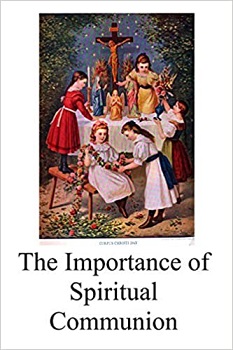
The Importance of Spiritual Communion
Kindle $2.99 / Paperback $5.99
If we cannot receive Holy Communion actually, then let us do so spiritually. These prayers and instructions have been gathered from the Saints and other venerated spiritual writers. Spiritual Communion has been a part of the spiritual life for decades. Growing up I was instructed to make a Spiritual Communion, when I could not go to Communion such as when I assisted at a second Mass. The same is true if one finds oneself at Mass, but not fasting. There are times coming, when it will be difficult, if not impossible to assist at the Holy Sacrifice of the Mass. We should be prepared for such times.
Novena For the Relief of the Suffering Souls in Purgatory
$4.00
Novena For the Relief of the Suffering Souls in Purgatory We present this small treatise to pious persons, entreating them to peruse it. Long ago the Holy Ghost said: "It is a holy and wholesome thing to pray for the dead, that they may be loosed from their sins." (II Maccabees 12:46) Our Lord shed tears in seeing the tomb of Lazarus, and the Church, well acquainted with the feelings of her Divine Founder, is incessantly recommending charity for the Souls suffering in Purgatory.
One of her eminent doctors, St. Thomas of Aquinas, has said that: "Of all prayers, the most meritorious, the most acceptable to God are prayers for the dead, because they imply all the works of charity, both corporal and spiritual." But there are many people unconscious of the fact that charity for the "Poor Souls" is profitable to the living as well as to the dead. It is the teaching of the most learned theologians, viz: St. Alphonsus Liguori, Sylvius, Robert Bellarmine, Bonacina, and Suarez. "It is true," says St. Alphonsus, "they are unable to pray or merit anything for themselves, yet, when they pray for others, they are heard by God." Let us refer to Bellarmine: "The Souls in Purgatory," says he, "can pray for those, who address to them their petitions, and obtain from God help, forgiveness, assistance against temptations, and, all favors, both temporal and spiritual, which they may need." Many Saints have experienced this wonderful assistance.
Purgatory Surveyed
$14.95
This quaint, but forcible and edifying book, was partly translated, partly, as the translator acknowledges, "disposed, abridged, or enlarged," from a treatise by Father Stephen Binet, a French Jesuit, which is entitled "De Festat heureux et malheureux des ames souffrantes du Purgatoire, ct des moyens souverains pour n'y aller pas, ou y demeurer fort peu; ou sont traictees toutes les plus belles questions du Purgatoire." Paris, 1625, in 12. Douay, 1627, in 24.
Father Binet was born at Dijon in 1569, entered the Society in 1590, and, having been successively Rector of its principal houses in France, died at Paris, 1639. This treatise is numbered 20 out of 36 ascetical works composed by him, and given in De Backer's Bibliotheque des Ecrivains de la Compagnie de Jesus. Their titles make one wish that some competent pen may be found to reproduce them for us in our own tongue.
The translator, who simply signs himself by the initials, R.T., was Father Richard Thimelby, also of the Society of Jesus. In those evil days, when it was death to be known to say Mass, or to reconcile anyone to the true Faith, almost every priest was furnished with an alias and Father Thimelby accordingly went sometimes by the name of Ashby. He is described in Dr. Oliver's "Collections" as being "of a genteel and ancient family in Lincolnshire." This is abundantly justified by notices occurring of the family, at two different periods of English history. Thus: (I.) In Sir S. Meyrick's Heraldic Visitations of Wales, and part of the Marches, Mention is made of Richard Thumbleby (Thimbleby), knight, who was one of the bailiffs of Harddlech, or Harlech, in the county of Lincoln, and son to John Thumbleby, armiger to King Henry V.
For More Good Traditional Catholic Books:

Brother Heinrich Treacher's Butternut Squash Soup
The perennial classic!
Ingredients
2 tablespoons butter
1 small onion, chopped
1 stalk celery, chopped
1 medium carrot, chopped
2 medium potatoes, cubed
1 medium butternut squash - peeled, seeded, and cubed
1 (32 fluid ounce) container chicken stock
salt and freshly ground black pepper to taste
Directions
Melt the butter in a large pot, and cook the onion, celery, carrot, potatoes, and squash 5 minutes, or until lightly browned. Pour in enough of the chicken stock to cover vegetables. Bring to a boil. Reduce heat to low, cover pot, and simmer 40 minutes, or until all vegetables are tender.
Transfer the soup to a blender, and blend until smooth. Return to pot, and mix in any remaining stock to attain desired consistency. Season with salt and pepper.
Pumpkin Gingerbread

Ingredients
3 cups sugar
1 cup vegetable oil
4 eggs
2/3 cup water
1 (15 ounce) can pumpkin puree
2 teaspoons ground ginger
1 teaspoon ground allspice
1 teaspoon ground cinnamon
1 teaspoon ground cloves
3 1/2 cups all-purpose flour
2 teaspoons baking soda
1 1/2 teaspoons salt
1/2 teaspoon baking powder
Directions
Preheat oven to 350 degrees F (175 degrees C). Lightly grease two 9x5 inch loaf pans.
In a large mixing bowl, combine your sugar, oil and eggs, there; beat until smooth. Add water and beat until well blended. Stir in pumpkin, ginger, allspice cinnamon, and clove.
In medium bowl, combine flour, soda, salt, and baking powder. Add dry ingredients to pumpkin mixture and blend just until all ingredients are mixed. Divide batter between prepared pans.
Bake in preheated oven until toothpick comes out clean, about 1 hour.
Video sermons and instructions: Timeless timely truths for living the Faith
Purgatory
Visiting Cemeteries
The Road to Heaven Requires Penance
Studying the Saints
Christ the King 2019

Encouragement for Today
Therefore encourage one another and build one another up.... I Thessalonians 5:11
We believe that through our assorted podcasts, Vlogs, audio downloads and devotional blogs, you will find an assorted Treasure Chest of...
Sermons
Classic Catholic Audio Books.
Devotionals
Scripture Studies
Catechism Lessons
Old-Time Christian radio programs
...that will be a help in your faithful walk with the Lord.
LEARN MORE AT THE ENCOURAGEMENT FOR TODAY WEBSITE: https://www.encouragementfortoday.com

Playing Ducks With Drakes

“For you shall go out with joy, and be led forth with peace: the mountains and the hills shall sing praise before you, and all the trees of the country shall clap their hands.”
Isaiah 55:12
In 1961, the astronomer Frank Drake invented the eponymous equation, designed to estimate the number of intelligent civilizations in our galaxy which we could contact. This number was found by multiplying seven other quantities, as follows:
1.The average rate of star formation in our galaxy
2.The fraction of those stars that have planets
3.The average number of planets that can potentially support life per star that has planets
4.The fraction of planets that could support life that actually develop life at some point
5.The fraction of planets with life that actually go on to develop intelligent life
6.The fraction of civilizations that develop a technology that releases detectable signs of their existence into space
7.The length of time for which such civilizations release detectable signals into space
It is obvious that the equation makes assumptions which are unproved and unprovable. We know that there are stars with planets and that some of these are Earth size. We can even allow that there may be some that have an oxygen atmosphere that could support life. But the fourth multiplier is the fraction of planets that could actually develop life. This number is zero because life does not develop. We have shown repeatedly that life cannot evolve from non-living compounds. Multiplying any number – however big – by zero will always give the answer zero. In the game of cricket, a score of zero is called a duck. Drake’s equation gives us a duck.
Catechism Catch-Up
The Fifth Commandment: Lesson 12
(Exodus 20:13)
Thou shalt not kill. (murder)
(Matthew 5:21-26)
“You have heard that it was said to them of old: Thou shalt not kill. And whosoever shall kill shall be in danger of the judgment. But I say to you, that whosoever is angry with his brother, shall be in danger of the judgment. And whosoever shall say to his brother, Raca, shall be in danger of the council. And whosoever shall say, Thou Fool, shall be in danger of hell fire. If therefore thou offer thy gift at the altar, and there thou remember that thy brother hath any thing against thee; Leave there thy offering before the altar, and go first to be reconciled to thy brother: and then coming thou shalt offer thy gift. Be at agreement with thy adversary betimes, whilst thou art in the way with him: lest perhaps the adversary deliver thee to the judge, and the judge deliver thee to the officer, and thou be cast into prison. Amen I say to thee, thou shalt not go out from thence till thou repay the last farthing.”
“Who is a Murderer?”
That is what our Lord is talking about in this passage of scripture.
There have been way to many murders in this country. We have the Los Angelus “Hillside Strangler.” It wasn’t very long ago that we had the Skid Row Slasher, a man who went along with a knife cutting up derelicts on Skid Row.
In Cook county Illinois there was a man by the name of John Gacy, who assaulted homosexually, little boys, and young boys, and then murdered them, stuffed them in plastic bags, and buried them under his house. 33 such bodies had been dugged up. We all remember the Manson murders. We all remember the people killed by Juan Corona and buried in the ground in places in Central California.
Their was an account of a mass murder in an Arizona beauty shop. How about the man in San Antonio, Texas, who decided to take out a rifle and just start shooting people, and he wounded at least 44 and killed at least 2. There is the story of a 15-year-old boy who waited until his father had come home from work, gotten comfortable in his easy chair, and then took out a gun and pumped a bullet through his brain and killed him.
We have teenage kids who hired a hitman to murder both their parents. And the police files can go on and on like this. At the time of this writing we have been told that at least 25,000 murders occurred in one year, and those are the ones they know about. It took a long time to discover the 33 bodies buried under the ground in plastic bags, and who knows but what other victims may lie in other places undiscovered.
Murders come in all kinds of ways. They come through violent crimes. They come through domestic squabbles. They come through homosexual love triangles, as well as heterosexual love triangles. They come through gang warfare's. They come as a result of arguments, and fights, and conflicts, and misunderstandings. They go on all the time. In fact, murders are so common place that they don’t always make the newspapers, unless they’re bizarre or multiple.
Murder is really a very serious problem in our world, getting worse all the time. And that doesn’t say anything about another form of murder, which is suicide. That’s a form of murder, that is taking a life. That doesn’t account for abortion, either, and since abortion was legalized there have been at least 6 million babies murdered as of this article.
Now notice what our Lord says in verse 21, “Ye have heard it said by them of old, Thou shalt not kill.” Where did that come from? Well if you know anything about the Revelation of God, you know it came basically from Exodus chapter 20, when God gave the Decalogue and said, “Thou shalt not kill.” But Scripture has a lot more to say about murder than just that.
In fact, if we go back even in the Book of Genesis, we find in chapter 9 verse 6 this statement, “Whosoever shall shed man's blood, his blood shall be shed:” Genesis 9:6 instituted capital punishment as a penalty for murder. And the reason is given in the same verse, “for man was made to the image of God.” To take the life of a human being is to assault the image of God He created in man, and that brings about serious penalty. And so Genesis 9 authorizes capital punishment for those who shed blood, because man is made in the image of God.
Now if you were to study Exodus 20, you would find that the word “thou shalt not kill,” means “murder.” It does not refer to capital punishment. That is taking a life under divine allowance. It does not refer to a just war. There were times in God’s economy of Israel. There are times in God’s plan for history when there are conflicts on a national level, carrying out certain exercises of the will of God in judgment upon some nations, where there might be an allowance for killing, and it would not be considered murder.
I do not believe that the text of Exodus 20 has anything to do with self defense. I think that we have the right to protect the image of God in the lives of our families, and those about us when they are assaulted and attacked by those who would kill them.
But what the Bible is talking about is murder, murder, planned, plotted to some degree murder. In Exodus 21:14 we read this. “If a man kill his neighbour on set purpose and by lying in wait for him: thou shalt take him away from my altar, that he may die.” Again, God reiterates the punishment of capital punishment or death for the one who presumptuously comes in a premeditative way to take the life of his neighbor.
In Numbers chapter 35 we have some further Word from God about this. It says, “If any man strike with iron, and he die that was struck: he shall be guilty of murder, and he himself shall die." (Numbers 35:16)
In other words, the society was to protect itself by taking the life of the one who indiscriminately, premeditatively took the life of another. And it goes on in Numbers chapter 35 to discuss other such situations where murder occurs.
Now if you know anything about the Bible, you know that this was the very first human crime. In Genesis chapter 4 it says this, “And Cain said to Abel his brother: Let us go forth abroad. And when they were in the field, Cain rose up against his brother Abel, and slew him. And the Lord said to Cain: Where is thy brother Abel? And he answered, I know not: am I my brother's keeper? And he said to him: What hast thou done? the voice of thy brother's blood crieth to me from the earth. Now, therefore, cursed shalt thou be upon the earth, which hath opened her mouth and received the blood of thy brother at thy hand.”
And so it is that from the first human crime, murder, on through the Revelation of God, murder is a biblical issue. Now if we study the Scripture, we know how God feels about it. It is forbidden. It is punishable by death. We learn other things about murder in the Bible. For example, we learn that murder is a crime authored by the devil himself. John 8:44 says the devil is a murderer. And murder is basically authored by Satan.
We find something else about murder in Matthew chapter 15:19, for example, we find that murder is a manifestation of an evil human heart. Matthew 15:19 says, “For from the heart come forth evil thoughts, murders, adulteries, fornications, thefts, false testimonies, blasphemies.”
Now listen to me. Murders, thefts, and all that other stuff do not happen because of social deprivation. They happen because of a degenerated human heart. Murder does not happen because of stressful situations. It happens because it’s authored by Satan himself.
In Romans 1:29 it says that man has been “been delivered up to a reprobate sense or mind,” and as a result of a reprobate mind, he is “filled with all iniquity, malice, fornication, avarice, wickedness, full of envy, murder, contention, deceit, malignity, whisperers,” et cetera. Man is a murderer because he has a reprobate mind that has been delivered up to evil because he rejects God. So that murder is a crime authored by the devil. It is a crime that comes out of the evil human heart.
In Galatians 5:21 Paul tells us that murder is an act of the flesh. It is a deed done by unregenerated human nature. We learn also in the Bible that murder is an abomination to God. In Proverbs 6:16-17 the Bible says there are “Six things there are, which the Lord hateth, and the seventh his soul detesteth: - ” and it lists this “ - hands that shed innocent blood.” Murder is abominable to God. Murder is an act of an unregenerated human flesh. Murder is a manifestation of an evil heart. Murder is authored by the devil himself. Murder is punishable by death because it is an intrusion into life, which is created in the image of God.
And to show you how seriously God views murder, it says in Revelation 22:14-15, “Blessed are they that wash their robes in the blood of the Lamb: that they may have a right to the tree of life, and may enter in by the gates into the city. Without are dogs, and sorcerers, and unchaste, and murderers, and servers of idols, and every one that loveth and maketh a lie.” The kingdom of God and the eternal state is not a place for murderers.
Now the list of biblical murderers is long, and we could spend all night and all through the night talking about them. The Old Testament lists a lot of murderers. I’ll suggest a few for your memory: Cain, Lamech, Pharaoh, Abimelech, Joab, the Amalekites, David, Absalom, Zimri, Jezebel, Jehu, Athaliah, Joash, Manasseh. The New Testament lists some others: Herod, Judas, and the high priests, Barabbas, Herodias, her daughter, and that’s a partial list.
Now biblical history and modern history are literally filled with murderers. From Cain to today, right now, we’ve had murderers in human society. You know when you think about a person who is a murderer, when you think about the kind of a man who could homosexually assault 33 little boys, stuff them in plastic bags and bury them in the ground, you shudder because it’s almost an inhuman thing. We can’t hardly relate to that.
We may relate a little easier to somebody who in a heated argument takes a gun and shoots somebody. We may relate a little more to a fight where somebody gives someone a blow that takes their life. But it’s all the same to God. We shudder, frankly, at the thought of murder. We’re afraid of it. We don’t like to walk the dark streets of certain towns or of our own city in certain places. We worry about getting double locks on our doors for fear somebody might come and kill us.
I know what it’s like to have the experience of having your life threatened and I know what it’s like to have people say they’re going to take your life. And perhaps you’ve lived through some anticipation or fantasy like that, or even a reality like that.
Now if we are sort of sick inside to think about such a crime as murder, we identify well with the scribes and Pharisees that Jesus is speaking to. For in Matthew 5 through 7, our Lord is addressing the scribes and Pharisees on a hillside in Galilee along with the rest of the multitude. But here in particular, He refers to their approach to life. Look again at verse 21 of chapter 5.
“You have heard that it was said to them of old: Thou shalt not kill. And whosoever shall kill shall be in danger of the judgment.” Stop right there. Now Jesus is saying, “You know, you believe that it’s wrong to murder because if you do you’ll be in danger of judgment.” And at that point the scribes and the Pharisees would have said, “Amen, Amen. We’re against murder. We have been taught by them of old by the rabbinical tradition that murder is an evil thing.” The thought that they did not commit murder was one way in which they convinced themselves they were righteous. We would not murder. We would never murder anyone. And consequently, we must be just. We have kept the law of God, ‘Thou shalt not kill.’ We wouldn’t murder anyone. And so their not murdering was one of their favorite ways to justify themselves.
Another favorite way we’ll find in verse 27, they took the law of God, “Thou shalt not commit adultery.” And because they didn’t commit the overt act of adultery, they convinced themselves that they were holy. And so if we reject the idea of murder. And if we say to ourselves, “Why, that terrible breed of humanity. That indescribable vileness that characterizes murderers, they’re a different kind of person than I am. I don’t murder. I’m not that kind of person. I wouldn’t hurt anybody.
And we would identify with the Pharisees at that point. But, this is precisely where Jesus wants to attack them. Back up to verse 20. He says, “For I tell you, that unless your justice abound more than that of the scribes and Pharisees, you shall not enter into the kingdom of heaven.” They said, “if we don’t murder, we’re just.” Jesus said, “Your justice has to exceed that. Not murdering is not enough.” And when He said “your justice must exceed the justice of the scribes and Pharisees,” He then proceeded from verse 21 to verse 48 to give six illustrations of how our justice must exceed that of the scribes and Pharisees.
And this is only the first one. And Jesus gives them a teaching here about murder that’s literally shocking. It is devastating. And it affects them in three ways, and it affects us the same three. Number one, it affects their view of themselves. It affects their view of God. And it affects their view of others. It affects their view of themselves, God, and others. What Jesus is going to say is so dramatic it’ll shatter all of their comfortable categories. They had convinced themselves because they didn’t kill anybody they were holy, they were just. Jesus blows that concept to bits.
The first point, Jesus’ words to them affects their own self-righteousness. They thought they were just because they didn’t kill. Now, it was rabbinic law that they adhered to. Notice again in verse 21. “You have heard that it was said by them of old.” Now Jesus here is reminding them of rabbinic tradition. He’s not referring to the law of Moses. He’s not referring necessarily to the Word of God. “Them of old” were the rabbis. This was a common formula referring to their past rabbinical teaching.
“Your religious system,” is what He’s saying, “your system of Judaism, your traditional system, your teaching says, you are not to kill, because if you do you’re in danger of judgment. You’ve been taught that. That is the tradition that’s passed down to you.”
The point that Jesus is making here is there rabbinic tradition doesn’t go far enough. There’s so much more. You have taken part of God’s law. You have interpreted it only partially and then satisfied yourself with keeping your partial interpretation, and therefore justifying yourself. And you’ll notice interestingly enough it says that “whoever does this shall be in danger of judgment.” And by the way, the term “judgment” the local court. Now I want you to think about this. What He is saying is this. Your teaching says, “You must not murder - ” now watch “ - because if you murder, you will be in danger of being punished by the civil court.” But it is not enough, it doesn’t go far enough.
Their full interpretation of the 6th commandment of the decalogue was this. Don’t kill because if you do, you’ll get in trouble with the law. But what about God? What about God’s holy character? Oh that didn’t even enter into the discussion. They had made this so mundane they didn’t even mention God. They didn’t even mention divine judgment. They said nothing about inner attitudes. They said nothing about the heart. All they said was, “Don’t murder or you’ll get in a lot of trouble.” Very superficial. Their interpretation stopped short. And because they didn’t murder and didn’t get in trouble, they decided they were self-righteous, self-justified, perfectly happy about themselves, justified before God. We don’t kill.
But listen, they forgot to read the rest of the Old Testament. Because the rest of the Old Testament says that God “For behold thou hast loved truth in the inward part,” Psalm 51:6. The rest of the Old Testament says that “Thou shalt love the Lord thy God with all their heart, soul, mind, strength, thy neighbor as thyself.” The rest of the Old Testament says that “God, who knows the hearts, and tries the hearts of men, will judge.” In other words, the part of God’s law they left out was the internal part. It wasn’t enough for you not to kill. God was concerned about what was going on inside. They had restricted the scope of God’s commandments to an earthly court. They had restricted the scope of God’s commandment to an act of murder.
And that’s why Jesus goes on in verse 22, and says this, “But I say unto you - ” Let Me tell what God really meant by that word in Exodus. Let Me give you the right interpretation. “ - whosoever is angry with his brother without a cause, shall be in danger of judgment: and whosoever shall say to his brother, Raca, shall be in danger of the council: and whosoever shall say, Thou fool, shall be in danger of hell fire.”
Jesus simply says, it isn’t the issue of murder alone, it’s the issue of anger and hatred in your heart. You cannot justify yourself because you don’t kill. Because if there’s hatred in your heart, you are the same as a murderer. And so I say the first point in this statement is that Jesus’ words affected their own self-righteousness. It affected how they viewed themselves, how we view ourselves.
We do this all the time. And we say, “Oh, you know, that category of people that murder, I would never do that.” And yet sometimes we get so angry on the inside with someone. We mock people. We may curse people. We may feel bitterness toward people. We may nurse grudges toward people. We have unreconciled feelings toward people. And our Lord Jesus is saying, “That is the same as murder.” Because God looks at the heart.
And so when He says, “I say unto you,” He swept aside all the rabbinical rubbish, and He put the emphasis where the emphasis belonged. He stripped them of their self-righteousness. He said, in effect, “Who is a murderer? I’ll tell you who is a murderer. Anybody who is angry with his brother, anybody. You’re a murderer.” That’s pretty straightforward, isn’t it? Pretty devastating. It strips the Pharisees bare, and it doesn’t do a bad job on us either, frankly.
Anger is murder’s root, and our Lord says anger and murder merit equal punishment. In verse 22, He is saying, “You’re in danger of the judgment. You’re in danger of the council. You’re in danger of hell fire.”
Now what’s our Lord doing? Our Lord is saying this, that what’s going on in the inside of you is what God judges. You may hate more than a murderer hates. You just don’t have an opportunity to kill. And even a less violent hatred than that, even anger with a brother to any degree, is the same in God’s eyes as murder. And so frankly, who is a murderer? The answer is all of us, all of us.
Listen to 1 John 3:15. “Whosoever hates his brother is a murderer" You have hatred, you’re a murderer. You have anger, you’re a murderer. And in God’s eyes, it’s no different than a man who goes out and does the crime.
You know, it’s amazing to me how we justify ourselves. Everybody does that, even the worst of men justify themselves, you know that? Even the worst of men justify themselves. On May of 1931, the city of New York witnessed the capture of one of the most dangerous criminals that that city had known until that time. He was known as “Two Gun Crowley.”
Two Gun Crowley, they said, would kill at the drop of a hat. He brutally murdered many people, even finally brutally murdering policemen. What did he think of himself? We know what he thinks of himself or what he thought of himself, because finally he was captured in his girlfriend’s apartment after a long gun battle involving at least 100 policemen. And when they finally got him, there was a bloodstained note there, because he was severely wounded, and this is what the note said. “Under my coat is a weary heart, but a kind one, one that would do nobody any harm.”
You say, “That’s absurd.” Yeah, but, you see, that’s the depth to which a human heart will go to justify itself. Here is someone who would do nobody any harm? Who’s he kidding? He survived and was later executed in the electric chair.
You see, even the worst of men exonerate themselves, to say nothing of the best of men, who would think, “Oh, I would never put myself in that category.” And Jesus strips us stark naked of our self-righteousness and says, “If you’re angry with a brother, or if you hate somebody, you’re a murderer.” Pretty serious. Jesus is saying, “Even if you don’t do the killing, if your heart is full of anger and hate you’re a murderer.”
By the way, sociologists and psychologists tell us that hate brings you nearer to murder than any other emotion. And hate is merely the extension of what? Uncontroled Anger. Anger, hatred, leads to murder. It is the common source of killing. And by the way, hatred and anger can even kill you, because it can eat you alive on the inside.
And so Jesus strikes hard to show us that even the best of men, if the truth were known, are the worst of men. You and I sit so smugly and we think that because we don’t commit these kind of crimes that we’re righteous before God, and Jesus says, “If you’ve ever been angry or hated someone, you’re a murderer.” And He uses three illustrations to reveal this sin in verse 22. Three. Let’s look at them.
First one. “Whosoever is angry with his brother without a cause,” Now that’s the first illustration. Jesus says, “You want Me to show you how serious this issue is? Whoever is angry with his brother without a cause is in danger of judgment.”
Now I think there’s a righteous anger that we need to talk about, but that is not what Jesus means here. There were times when Jesus took a cord, and started throwing people around. There are times when God’s indignation reaches its absolute limit and explodes. There are times when the vengeance of God bursts loose and people lose their lives for a time at eternity.
And there are times when a believer has a right to be angry. In fact I believe that the holier we get, the angrier we get about some things. And I think we need a little more of that, you know? In a day when everybody wants to talk about love, and let’s all get together, and don’t say anything against anything, we begin to get so mealy-mouthed about everything that we won’t stand for anything.
Now I think maybe that some of us ought to learn a little bit about righteous indignation and start getting mad about some things. There are lots of things going on in our country we ought to be mad about, or be angry about, with a righteous indignation. There are some things going on in our schools that we ought to be angry about and have righteous indignation over. Some of the things our children are exposed to we ought to be angry about. Some of the trends in our society we ought to be angry about. Some of the things that come waltzing into our homes on that ridiculous boob tube and on the internet we ought to be angry about.
We ought to get angry about some things. We ought to have righteous indignation. We ought to be angry, Ephesians 4:26 says, with the kind of anger that is not sin. He says, “Be angry, and sin not.” There is a right kind of anger.
But here He’s talking about selfish anger. You’re angry with a brother. Something has happened and you’re really hopping mad. You’re angry. And it can be a slow burn or it can be a flaring thing. The root word is orgē and orgē is a sort of a brooding, nursed anger that is not allowed to die. It’s just a smoldering, long-lived kind of thing for the most part.
And when you hold a grudge against somebody, when you hold a bitterness against somebody, when you hold anything no matter how small against somebody, you are as guilty, says Jesus, as the person who takes a life, and you deserve the same judgment. If you are angry with your brother, you are in danger of judgment. There shouldn’t be any difference. It’s just as serious.
By the way, the judgment at the end of verse 21 that the civil court would give would be execution. And He says the same thing right here. If you’re angry, you are in danger of execution. Capital punishment should belong to you for anger just as much as for murder. Now this is a tremendous statement, devastating, because it forces us inside. It isn’t what we do so much as what we are and what we feel.
I don’t know a civil court in the world that would give the death penalty to somebody for getting angry. They may give it throughout history for murder, but not for anger. But if God’s calling the verdicts, and God’s sitting on the throne, He is saying in effect that the one who is angry is as guilty as the one who kills.
Now I want you to notice the second illustration He uses in verse 22. “Whosoever shall say to his brother, Raca, shall be in danger of the council.” Now what does this mean? Well, this person is also condemned as a murderer. This is another person who ought to go before the council and get the same death penalty. He’s saying to the Jews, “You’re afraid of the death penalty for murder? On God’s terms, it ought to be the same penalty for anger, and there ought to be the same penalty for saying ‘Raca’ to somebody.”
Now Raca is an interesting term. It’s very hard to translate. It is what some has called an untranslated epithet. In other words, it doesn’t mean anything. It was sort of a term of derision that doesn’t really translate. It meant something in that time and they all knew what it meant. It is a malicious term. Some have said it means “brainless idiot.” Some have said it means “worthless fellow, silly fool, empty head, blockhead, rockhead.” What it is is a verbal expression of slander against the person. Maybe more directed toward his personality, and toward something in his character, or something in his looks, something of that sort. It is a word of arrogant contempt. It is a word of despising. You know, it’s when you cut off a guy, and he rolls his window down and says it to you. In our language it’s different, but it’s basically the same thing, or he can do the same thing by making gestures with his hand or whatever. It’s the same thing. And I've heard it a few times in my life. It didn’t come out “Raca” but it was “Raca.” But the person who does that is the same.
It’s the poison under the tongue, like the adders poison of Psalm 140. It’s that malicious, slanderous verbiage cast in somebody’s teeth as they did to Jesus. And it says in Matthew 27:29, “they bowed the knee before him, and they mocked him.” They mocked Him. “You worthless fellow, you silly fool, you stupid idiot,” that kind. It is a word used by someone who despises another.
There’s a tale told about a certain rabbi whose name was Simon Ben Eleazar, and Simon Ben Eleazar was coming from his teacher’s house, and he’d just had a lesson at the feet of this great teacher, and he was feeling uplifted in the thought of his own scholarship, and he was so pleased with his own great knowledge, and he was so thrilled with his own righteousness, and his own goodness, and his own holiness. And as he was walking along he came across a very low, rather ugly common man who passed by and greeted him. And the rabbi did not return the greeting, but said, “You Raca, how ugly you are. Are all the men of your town as ugly as you?” To which the man replied, “That I do not know, go and tell the Maker who created me how ugly is the creature He has made.”
Contempt, says our Lord, is murder in the heart, and the death penalty is equally deserved. Beloved, what Jesus is saying is what you feel. What you feel inside is enough to damn you to eternal hell as much as what you do on the outside. That’s the message.
There’s a third illustration in verse 22. “Whosoever shall say, Thou mōros - ” from which we get our word moron “ - shall be in danger of hell fire.” Now apparently this was even a worse thing to say to somebody. It seems as though there’s a rising level. If you notice the word mōros, from which we get moron, comes apparently from a Hebrew root, marah. And marah means to rebel. And in the Hebrew Bible, a fool was one who rebelled against God. And so to call someone a rebel against God, now if it’s true, you did him a favor. But if you’re doing it as a epithet of hatred, then it is a sin. Let me show you the difference.
Jesus said to the Pharisees, “You fools,” you mōros. Only it wasn’t wrong for Him to say it because it was true, wasn’t it? They were fools. They had rebelled against God. “The fool has said in his heart, There is no God,” it says in the Psalms. “The fool - ” according to the Proverbs “ - lives against God.” The fool lives a life set against God. He lives a life of self-will, and self-design, and you do a man a favor to go and say, “You’re a fool to live like that.”
Jesus walking on the road to Emmaus said to those disciples, “Fools and slow of heart to believe.” There is a time when we do people a favor to say, “You’re foolish.” And what Jesus is trying to do, and He does it very well, is absolutely destroy the system of self-righteousness. It can’t stand that kind of examination. And so our Lord gets to the core of the matter.
Now you notice the word “hell fire” at the end of verse 22? It’s a very serious word, the word “hell.” The Greek word translated “hell” here is the word gehenna, and I want to tell you about it. It’s fascinating. Gehenna is a word with a history. Gehenna is used and translated “hell” very commonly. It’s Matthew 5:22, 29, 30, Matthew 10:28, Matthew 18:9, 23:15, and 23:33, Mark 9, Luke 12. It’s used in James. It’s a very common word. It means “hell.” But gehenna is a reference to Hinnom, gehenna is a form of Hinnom. It means the valley of Hinnom.
The valley of Hinnom is southwest from Jerusalem. It’s very easy to see. It’s there today. It is a notorious place. I’m going to read you a little of its history. It was the place where Ahaz had introduced into Israel the fire worship of the heathen god Molech to whom little children were burned in the fire. “It was he that burnt incense in the valley of Benennom, and consecrated his sons in the fire.” Says 2 Chronicles 28:3. Further, Josiah the reforming king had stamped out the evil worship of Molech in the place of Hinnom, and ordered that the valley should be forever after an accursed place. Because of what had gone on, because it had been defiled, because in the valley, there had been the fire of Molech.
Now in consequence of this, the valley of Hinnom bore that curse throughout all of Israel’s history. It became a place where the Jewish people dumped their garbage. The valley of Hinnom was the garbage dump of Jerusalem. And what they had there was a public incinerator that burned all the time, all the time, all the time, never went out, never went out. And when Jesus referred to gehenna or hell and described the eternal state of the wicked as gehenna, what He was saying is it is an eternal, never ending fire, in an accursed place, where the rubbish of humanity will burn and be consumed. Vivid language.
Always, says the historian, the fire smoldered in Hinnom, and a pall of thick smoke lay over Hinnom at all times, and it bred a loathsome kind of worm which was very hard to kill. That is what our Lord refers to as an illustration of the soul in Mark 44, “where the worm dies not.”
So gehenna, the valley of Hinnom, became identified in peoples’ minds as a filthy, vile, accursed place where useless and evil things were destroyed, and Jesus used it as a vivid illustration of hell. And He says if you’re even angry and if you ever say a malicious word to sort of put down some person, or worse than that if you ever cursed them as it were to hell, you are as guilty and as liable for eternal hell as a murderer is. And so Jesus attacks the sin of anger, the sin of slander, and the sin of cursing, and with it He destroys their self-righteousness.
His words have a second effect in verses 23 and 24. They affect not only their self-righteousness, but they affect their worship of God. Now, Jesus moves from the Pharisees, and the scribes, and the people to Himself. And for us, He takes us to the area of worship, and I want you to see what He says.
Worship was a major issue with scribes and Pharisees. Their whole life was worship. They were in the temple all the time doing their thing, worshiping God, making sacrifices, carrying out the law. Their life was a circumscribed life of worship. But our Lord here condemns that very worship.
Look at verse 23, “Therefore,” in other words, the “therefore” means since God is concerned with internal things, since God is concerned with attitudes toward others, how you feel about your brother, how you speak to your brother, and whether or not you curse your brother, since God is concerned with internal things listen to this. “If you bring your gift to the altar - ” here you come for worship “ - and there remember - ” when you get there, you remember “ - your brother has anything against you; Leave there your gift before the altar, go your way; first be reconciled to your brother, then come and offer your gift.” In other words, reconciliation comes before worship.
Every Jew would understand this scene. The Jews knew the standard of worship. The idea of sacrifice for them was very obvious, very simple. If a man committed a sin, what happened? A breach came between himself and God. The relation was disturbed. How was that to be remedied? It was to be remedied by a contrite and broken heart, and a man was to confess his sin, and a man was to manifest repentance, contrition and brokenness. And then in order to manifest outwardly that inward feeling, he was to bring an animal as a sacrifice. The animal wasn’t the issue. The attitude was, you see? You see, obedience in the heart is better than sacrifice. The sacrifice was merely an outward symbol of a repentant obedient heart. And so when the breach came, and the man repented and in sorrow asked forgiveness, and set things right with God, he then brought a sacrifice.
And so the picture here is perhaps even the day of atonement, and the Jew is coming because he wants to be apart, and he has his own sacrifice to bring, as well, and he comes and he offers the sacrifice to the priest. He walks through the outer part of the courtyard, and he walks into the inner part of the courtyard, and finally he comes to the court of the priests and he has to stop there because he can’t enter. Only the priests could go in there.
And so he takes the sacrifice and gives it to the priest, and then he’s to lay his hands on it to identify with it. And the priest takes it in and makes the sacrifice. And the man gets all the way there, and he’s got the thing in the hands of the priest, and he puts his hands on it, and the identification is going on, and all of a sudden Jesus is saying to him, “Stop right there. You remember you have your brother? And the brother has something against you. Leave that altar. Don’t make that sacrifice until you make things right with your brother. Settle the breach between man and man before you settle the breech between man and God.”
This isn’t anything new. They knew this. This had always been God’s standard. In Isaiah 1:11, God said to Israel through Isaiah, “To what purpose do you offer me the multitude of your victims, saith the Lord? I am full, I desire not holocausts of rams, and fat of fatlings, and blood of calves, and lambs, and buck goats.” I don’t want any more of your vain oblations. “Your incense is an abomination unto me; your new moons and your feasts my soul hate: they are trouble unto me; I am weary of the whole thing.” Why? “Your hands are full of blood. Seek justice, relieve the oppressed, judge the fatherless, and plead for the widow.” He’s saying, “Don’t you dare come to Me with your religion until you’ve made your life right with the poor, and the oppressed, and the orphans, and the widows.” In other words, deal with your brother, and then deal with Me, see?
Isaiah wasn’t even done with that theme because it came again in 58:5. “Is this such a fast as I have chosen: for a man to afflict his soul for a day? is this it, to wind his head about like a circle, and to spread sackcloth and ashes? wilt thou call this a fast, and a day acceptable to the Lord?” In other words, don’t come to Me with your phony worship until you’ve met the need of your brother.
That’s what our Lord is saying. This isn’t anything new to them. They knew the breach between a man and a man came before the breach between God and a man could rightfully be settled.
Jeremiah 7:9-10 He said, “To steal, to murder, to commit adultery, to swear falsely, to offer to Baalim, and to go after strange gods, which you know not. And you have come, and stood before me in this house?” Get out of here, He says. Till you make right the relationships. That’s what He’s saying. The picture’s very vivid. He says, “If you Pharisees and you scribes and you religionists, you come in with all this worship paraphernalia. I don’t want any of it. Go away. Go away until it’s right with your brother.” That’s what the Lord is saying.
Now, the Lord brings us to a very fascinating point. Look at verse 23 again. “If you bring your gift to the altar, and you remember that your brother has something against you.” It isn’t even that you’re angry, it is that he’s angry at you. Do you see how important it is that we have right relations?
Now I believe that the implication here is that the one offering the offering has caused the anger or contributed to the anger of this other one. But, you see, in verse 22 He says if you’re angry, you’re in danger of condemnation. And in verse 23 He says if anybody’s angry at you, I don’t want your worship. Go away. “Leave your gift, be reconciled to your brother and then come and offer your gift.” Our Lord shows His holiness in the fact that He’s not even dealing with the anger of the one worshiping. That was dealt with in verse 22. He is dealing now with anger against the worshiper.
You know you may know that somebody’s upset at you. You may know that somebody has something against you. You may not feel anger toward them. You might - I have people say this all the time. “You know, I don’t understand why they feel like they do. I don’t feel anything about that. I don’t have any - I’m free from any animosity. I don’t feel any anger.” If they do, you better go and settle that. God doesn’t want anybody angry with you. That is rendering you guilty of murder. That’s pretty strong stuff.
If you come to Church to worship the Lord and you’re angry with somebody, leave. Leave, and stay away till you’ve done your best to make it right. If you come to Church and because of something that happened somebody’s angry with you and you have never tried to make it right, I don’t care who that person is, go and make it right and don’t come back until you have done everything you can to make it right.
Listen, if you want to enhance your Parish, then everybody who’s got something against a brother, leave. And come back when it’s right. Then we’ll see the power of the Spirit of God in our midst.
I believe that every Sunday there are people who come to Mass, husbands and wives who have bitterness between the two of them and they try to worship God, and God doesn’t want anything to do with it. I believe there are families that come where there’s animosity from the kids toward the parents or the parents toward the kids and God isn’t interested in their worship.
I believe that there are times when we come to church and there is a feeling against somebody else in the church, or a neighbor in the street or somewhere, and we know there’s a bitterness. We do absolutely nothing about it. There’s a fellow Christian that we don’t particularly care for and something has happened, and we let that thing settle in a bitterness. And the Bible says, “Go away. You offer nothing to God. He is not interested in your worship. It’s a sham.”
Psalm 66:18 says, “If I regard iniquity in my heart, the Lord will not hear me.” First Samuel 15:22 says, “Doth the Lord desire holocausts and victims, and not rather that the voice of the Lord should be obeyed? For obedience is better than sacrifices: and to hearken rather than to offer the fat of rams.”
You say, “How do I find that person who’s angry with me?” Well, I think the implication of the text is that you know this person’s angry with you. I mean, obviously, there are people angry with me. I don’t even know it. I can’t run around just asking everybody. And there are other times when I know somebody’s angry with me and I try to reconcile with them, and I do my best, and I ask their forgiveness, and I try to make it right, and they don’t forgive me. But I’ve done the best I can. There’s nothing more I can do. Then I am free to worship God.
I try to be reconciled with some people. It’s very hard. There are some people I should reconcile with but I don’t even know that they feel that way. But listen, when I do know it and when I can do something I must, says Jesus. And so Jesus’ words are devastating. They affect our own self-righteousness and they affect our worship of Him.
Finally they affect our relations with others. He’s already introduced that in verses 23 and 24. He’s already said that. And now He gives a specific example in 25 and 26. He says Now that you’ve taken care of the worship part and you’ve left, here’s what to do. Now that you’ve left to get it right so you can worship God, “Be at agreement with thy adversary quickly, whilst thou art in the way with him: lest perhaps the adversary deliver thee to the judge, and the judge deliver thee to the officer, and thou be cast into prison. Amen I say to thee, thou shalt not go out from thence till thou repay the last farthing. (The last quarter of a cent).”
Now what’s He saying? The imagery of our Lord is graphic. He is saying you better go and get it right with your brother. And He uses an illustration borrowed from the old legal method of dealing with debtors in Jewish society. The idea is that you’re here worshiping and you’ve got a debt. And it’s come to the place where you’re actually being dragged into court over this debt. This is a very important thing.
And the key on it is in verse 25, “Be at agreement with thine adversary quickly.” Immediately, now. I mean you’ve left your gift. Go, do it now. Say, “You know, I’m just gonna work that out when the right time comes, and I’m going to say something.” Now, immediately. Time for reconciliation. Because tomorrow may be too late is the implication. You’ll be cast into prison and you’ll have to be stuck there without the possibility of ever paying back that debt, and it’ll be too late.
Now here our Lord focuses on the guilty party. In 23 and 24 He’s saying, essentially, you’re there at the altar. You’re there, and you know somebody hates you, somebody is angry with you. And now He moves to deal with the factor of guilt. There may be guilt on both sides, but the guilty party is in view, if it’s both or if it’s one. And He is saying, “Settle your case out of court.” That’s what He’s saying. Don’t let this thing continue and continue until you’re on your way to court, and then somebody will lose and get thrown into prison, and never be able to pay it back. That’s what He’s saying. Settle it out of court.
In Jewish law when a man was adjudged guilty and he was adjudged to be the debtor, he was handed over to the court officer and the court officer, then, tries to exact from the individual the payment to the creditor. The adjudication says that this man has to pay this man so much. The court officer tries to get it, if he can’t get it, he takes the man who defaults, slams him in prison, and he has to stay in prison till he can pay it back. The point is if you’re in prison, you can’t ever pay it back. Can’t be done. Jesus here is saying, settle it out of court, reconcile before it’s severe judgment and you can’t reconcile at all.
Now what does He mean here? Does He mean that the time will come when the person will die and you’ll never be able to reconcile? Does He mean the time will come when God will chasten you and judge you, and it’ll be too late? Possibly both of those things. He doesn’t really explain that. But what He does say is this. You can’t worship Me unless your relations are right. So hurry, hurry and make them right. Don’t let them go to the place where there will be a civil judgment made and somebody loses in the end. Don’t let it go too far is the idea. Don’t let it go to the place where God in, in judgment, moves in. Act before then.
And I believe in the final analysis, He’s saying that God is the real judge, and hell is the real punishment. And if you don’t make things right, you may find yourself in an eternal hell with a debt that never could be paid.
Now what He is saying, let me sum it up right now. You Pharisees and scribes who are depending on your own self-righteousness, just because you don’t kill, you think you’re holy, let Me tell you something. If you’re angry, if you’ve ever said a malicious word about somebody’s character, if you’ve ever cursed anybody, you’re like a murderer. If you’ve ever come to an altar to worship God and had something against your brother, you are in danger of such judgment, such hypocrisy would be enacted in your worship that you leave that gift and run to make it right.
And when you get into a conflict with somebody, immediately, as fast as you can, resolve that issue because you, too, are in danger of hell. The point He’s telling them is this. The fact that you don’t murder is a little piece of the iceberg. You’ve got grudges that you’ve never settled. You worship in hypocrisy. You curse. You malign. You’re angry. And the same judgment comes upon you for that. Death and hell are what you deserve. That’s what He’s saying.
And so does Jesus speak to their self-righteousness, speak to the issue of worship, and speak to the issue of relationships with others. He devastates their comfort, their confidence, the smugness of their self-righteousness by setting a standard so high that nobody keeps it.
Listen. Who is a murderer? Ask yourself, who is a murderer? Have you ever been angry? You ever called anybody a name? Maybe your wife or husband or child? Somebody under your breath? Have you ever cursed anybody? Have you ever come to church to worship while you had bitterness in your heart? Such hypocrisy. Have you ever had a grudge with somebody and you dragged it all the way to the court and you never settled it? And you weren’t faithful? Then you’re the same as a murderer because you allowed conflict, bitterness, hatred, anger to enter into your heart.
Let me ask a second question. First question, who is a murderer? Second question, who deserves death and hell? Who does, who deserves death and hell? You do, I do, we’re all guilty of murder. We’ve all sinned and come short of the glory of God, and the wages of sin is death. And so you say, “Well, how do we escape? I mean if we’re all murderers and no murderer will inherit the kingdom, if we’re all murderers, and we all deserve death and hell, then how do we escape? I mean we’ve all worshiped in hypocrisy. We’ve all been angry. We’ve all said malicious things. We’ve all thought a curse, or said a curse. We’ve all been unreconciled to a brother. We’ve all done that. What are we going to do?”
And that is exactly what Jesus is after. He wants to drive them to the fact that they cannot be righteous on their own, which will drive them to their knees at the foot of the cross to ask Jesus Christ to make us righteous before Him. You see? Everything that He says here is to drive them to frustration and inadequacy so that they come to Him.
READ MORE FROM THE TRADITIONAL CATECHISM AT THE WEBSITE: https://www.traditionalcatechism.com
Living Catholic:
How should I deal with irritations?
Irritations spring from many sources: the people around you, the environment you live in, and the details of your personal life.
The things that aggravate you usually influence your attitudes and actions. If you respond to irritations in a positive way, you can begin to resolve anger and worry and you can grow in maturity. In the Bible, God promises that all things will work together for good in the lives of those who love Him. (See Romans 8:28–29.) Even your irritations are present for a reason, and your response to them matters.
Identify Irresolvable Irritations
You can resolve some irritations. For example, a squeaky door can be oiled. A pesky personal habit can be changed. An angry neighbor can be appeased. Be willing to do what it takes to resolve these issues.
It is beyond your power to resolve all irritations. For example, people may have personality traits that annoy you, traffic issues might not get worked out, or a physical problem could affect the way you live. However, your responses to these issues are significant. God can use unavoidable irritations to increase your sensitivity to the needs of others, expand your opportunities, and develop your inward character.
If you react wrongly to irritations, you forfeit the benefits they can provide. However, as you respond to them with insight and proper action, you welcome God’s work in your life, allowing Him to achieve His highest purpose for you—to make you like His Son, Jesus Christ.
Respond to Irritations With Faith and Patience
When you are irritated, it is tempting to respond by defending yourself, blaming others, or getting angry. These responses do not resolve the irritation but instead set you on a path toward more anger and frustration.
Choose the following responses when you are irritated. As you honestly address the situation before God, your irritations can become a classroom of maturity.
- Thank God for the irritation.
If you are a Christian, you can be confident that God is using everything—even your irritations—to accomplish His purposes in your life. (See Romans 8:28–30.)
“In all things give thanks; for this is the will of God in Christ Jesus concerning you all.” (I Thessalonians 5:18; also see Philippians 2:14–15). When you face irritations, keep these truths in mind:
- I belong to God.
- God wants the best for me.
- God is bigger than the source of irritation.
- God has allowed the irritation for my ultimate benefit.
- God’s work and reputation are affected by my response to this irritation.
- Identify possible causes.
Consider if you have contributed to the cause of the situation. Ask the following questions:
- Did I cause this irritation by something I did or failed to do?
- Does this irritation reflect a personal fault or lack of character development in my life?
- Determine ultimate objectives.
Ask God for insight into His purposes and plans. Ask the following questions:
- Lord, what character qualities do You want to develop in my life?
- Father, how do You want to use this irritation to help me develop those qualities?
Reflect the Love and Light of Christ
The process of maturity that occurs as you respond well to irritations resembles the process of cutting and polishing a precious gem. Through careful planning and precise actions, smooth facets are created on the surface of the stone to increase the gem’s capacity to reflect light. As you learn to respond to irritations with faith and patience, your life will reflect the love and light of Jesus Christ with greater brilliance.
"In all things we suffer tribulation, but are not distressed; we are straitened, but are not destitute; We suffer persecution, but are not forsaken; we are cast down, but we perish not: Always bearing about in our body the mortification of Jesus, that the life also of Jesus may be made manifest in our bodies.” (II Corinthians 4:8–10).
To Learn More Principles For Life Go To: Resources: Principles of Life


Pray for the Holy Father! Pray with the Holy Father!
- Your prayers are asked this month and every month for the intentions of the Holy Father, Pope Michael.
- Pray especially that Holy Ghost inspires and helps us prepare spiritual manuals and days of recollection to make available to all.
- Keep in your prayers our Podcast Ministry, a new way to reach out in the missionary work of the Church! We ask for prayers for our other activities world wide. We have made good contacts in the Philippines and Japan and ask prayers that these contacts will bear much fruit for the salvation of souls.
- Be sure to keep St. Helen Catholic Mission in your prayers. Why not go on over to the site now and see what they have to offer and how you might be able to help!
- Also we ask you to keep in prayer our increasing missionary work in the United States and elsewhere.
- Your prayers are asked for Father Francis Dominic as he continues the work in Kissimmee Florida that has been entrusted to him within the Church.
- Pray for those outside the Church and those who do not know God, that they may see the light of grace and be led safely home to the refuge of the Holy Catholic Church.
- As always, we also ask that you pray for yourself! Never forget your own state of soul. God is calling you to His service in His love. We know that our Lord can count on you to answer.
- We are all praying especially for you, too. May you correspond with every grace of God!
- In what other needs or intentions may we pray for you? Let us know!
- Let us remember that the Church runs on prayer. Without your prayers, God will not work in hearts and souls to bring them to a knowledge of the truth. (I Timothy 2:4)


To Donate online go to:

To Donate by Mail:
Our address is
Vatican in Exile
829 NE Chester
Topeka, Kansas 66616
Make Checks payable to:
Vatican in Exile

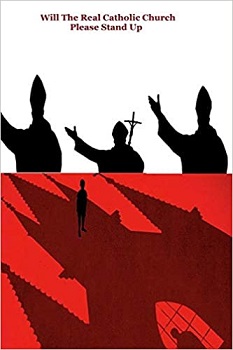
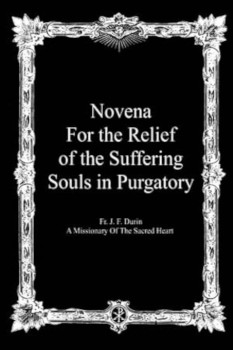
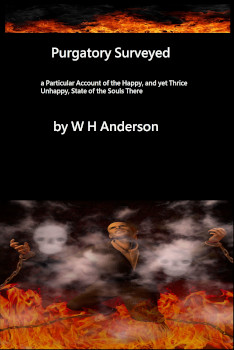










 Follow
Follow


